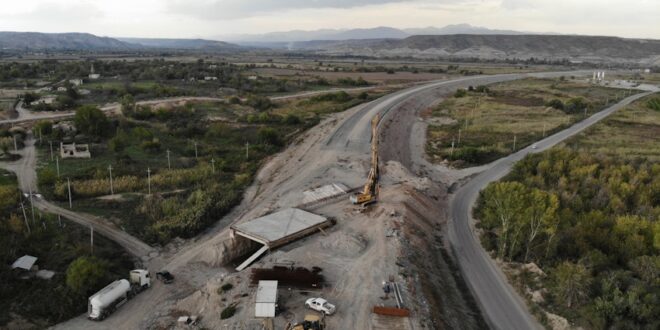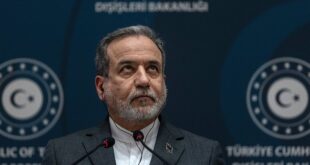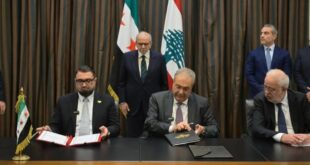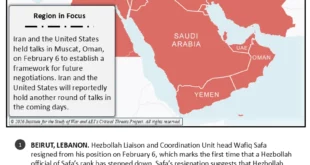The story: Apparent Russian support for a controversial corridor linking Azerbaijan to its Nakhchivan exclave has triggered outrage in Tehran. The proposed route has long been opposed by Iran as it would sever the country’s land connection to Armenia. The flare-up between Moscow and Tehran highlights lingering points of contention, even as the two sides have developed unprecedented military cooperation since the Russian invasion of Ukraine. Though the Islamic Republic favors strong ties with the Kremlin, tensions could worsen if there is significant progress in engagement between Iran’s new Reformist government and the west.
The coverage: The director general of the Iranian foreign ministry’s Eurasia Department on Sept. 2 summoned Russia’s ambassador to express Iran’s opposition to any changes to the geopolitical landscape of the South Caucasus.
Mojtaba Damirchilou said Iran opposes altering internationally recognized borders. He further emphasized that respecting national sovereignty and territorial integrity is key to “lasting peace and regional cooperation” in the region.
Seemingly alluding to rising tensions with Russia, Foreign Minister Abbas Araghchi on Sept. 2 asserted that “regional peace, security and stability is not merely a preference, but a pillar of our national security,” adding that “any threat…to territorial integrity of our neighbors or redrawing of boundaries is totally unacceptable and a red line for Iran.”
Zangazur Corridor
Azerbaijan’s plan to develop a direct route to Turkey has stirred tensions with Armenia and Iran, who say it will cut their land border. The route has also pitted Ankara against Tehran.
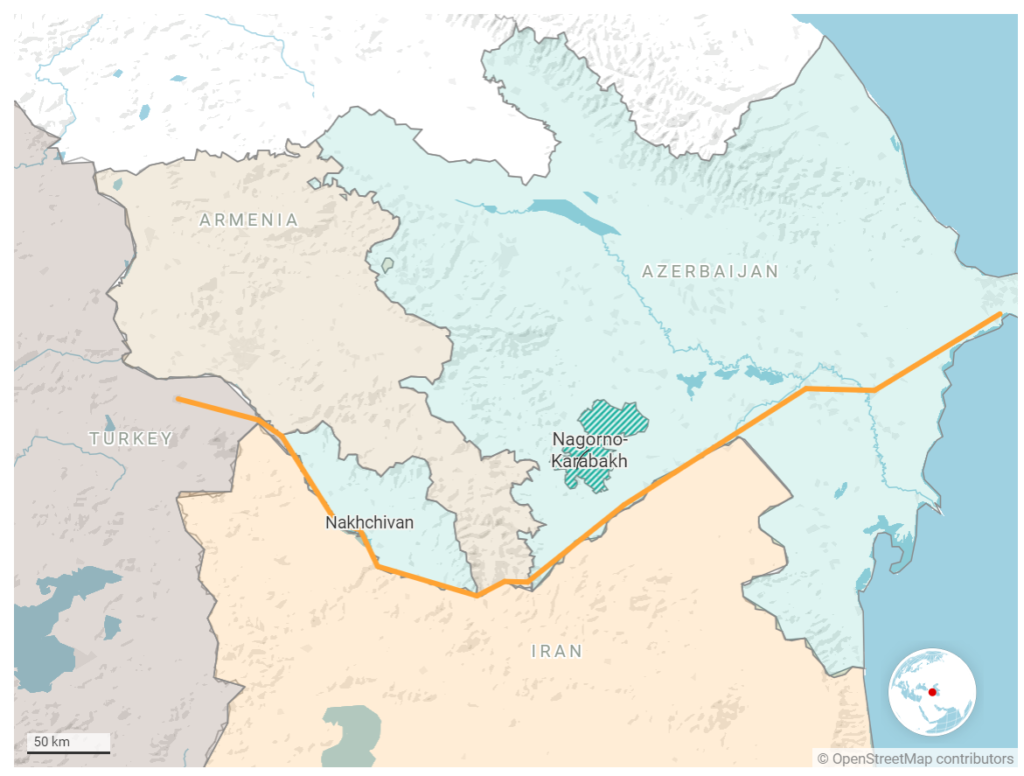
The backlash came after Russian Foreign Minister Sergei Lavrov in an Aug. 19 interview accused Yerevan of “sabotaging” a Moscow-brokered deal to open transport links between Azerbaijan and its Nakhichevan exclave through Armenia’s southern Syunik Province.
Lavrov’s comments came as Russian President Vladimir Putin met his Azerbaijani counterpart Ilham Aliyev in Baku to discuss trade while offering to broker peace deals between Azerbaijan and Armenia. According to one Armenian MP, the Zangazur Corridor was also on the agenda.
Putin’s visit to Baku took place amid deteriorating Moscow-Yerevan relations, which has seen Armenia drift towards Europe and particularly France.
Ten days later, on Aug. 29, Russia said it was aware of Iran’s concerns regarding the building of the corridor. Yet, this did not stop the new Masoud Pezeshkian administration from summoning the Russian envoy to Tehran.
Lavrov and Putin’s maneuvering have been poorly received in Iranian media, including among hardline outlets which are usually supportive of stronger ties with Russia.
Reformist daily Arman-e Emrouz said on Aug. 31 that Russia was “dreaming up” a plan for “Iran’s borders,” warning that Moscow’s apparently shifting stance on the Zangazur Corridor is “a serious threat.” The paper in a separate piece called the maneuvering by Moscow as “Russia’s geopolitical coup against Iran.”
Pro-reform Entekhab asked if Russia “had given the green light for Iran’s geopolitical suffocation.”
In an extensive critical piece, hardline Tasnim News Agency advised Russia not to pursue the “illusive” corridor. It also charged that the Russian foreign ministry was “suffering from a delusion” in thinking that Moscow could “solve its problems with Armenia” through the transit project.
Political analyst Ali Bigdeli told the moderate news site Fararu on Sept. 1 that the corridor was “Putin’s gift to Turkey and Azerbaijan” and complained that “Russia once again put its own interests ahead of those of Iran.” Jamaran news website echoed the same sentiment.
Of note, the conservative Moj news site advised the Pezeshkian administration not to pin “all its hopes on negotiating with Europe” to remove sanctions.
The outlet said Iran’s new government must pay attention to the Caucasus and protect the country’s interests in that region.
Iranians on social media expressed harsh criticism of the seeming Russian stance on the Zangazur Corridor.
Historian and documentary producer Hossein Dehbashi on Twitter/X accused Moscow of regularly expressing “disloyalty” and pushing a “dagger” into Iran. He also questioned the supply of drones to Russia amid the invasion of Ukraine.
Moderate former lawmaker Ali Motahari warned that Iran’s new government should “be sensitive” to the emergence of a route going through Syunik, warning that it would break Iran’s link to Armenia and thus Europe.
“Russia has never thought of Iran’s interests, especially today when it is caught up in the issue of Ukraine,” Motahari asserted.
The context/analysis: Under late conservative president Ebrahim Raisi (2021-24), Iran grew increasingly closer to Russia.
As part of its “Look to the east” policy promoted by Supreme Leader Ayatollah Ali Khamenei, Iran has in recent years cherished an emerging economic partnership with China and Russia.
Iran’s defense and security cooperation with Russia has grown significantly with the start of the Russia-Ukraine war in 2022. The collaboration has revolved around Tehran’s supply of drones.
Despite the unprecedented military cooperation, Russia has not shied away from siding against Iran on sensitive geopolitical issues—much to Tehran’s dismay.
Iran’s foreign ministry in July 2023 summoned the Russian ambassador to protest a joint statement by Gulf Cooperation Council (GCC) member states and Russia challenging Iran’s claim over the islands of Abu Musa, Greater Tunb, and Lesser Tunb.
Though both Iran and the United Arab Emirates (UAEA) claim ownership, the islands have been under Iranian control since 1971, just before the UAE was established.
The 2023 statement, issued after a GCC-Russia meeting in Moscow, backed the UAE’s efforts to “reach a peaceful resolution” over the islands. China landed itself in hot water with Tehran over a similar issue in Dec. 2022.
UAE claims three islands held by Iran
Iranian forces entered Abu Musa as well as the Greater and Lesser Tumbs days before the establishment of the UAE in 1971.
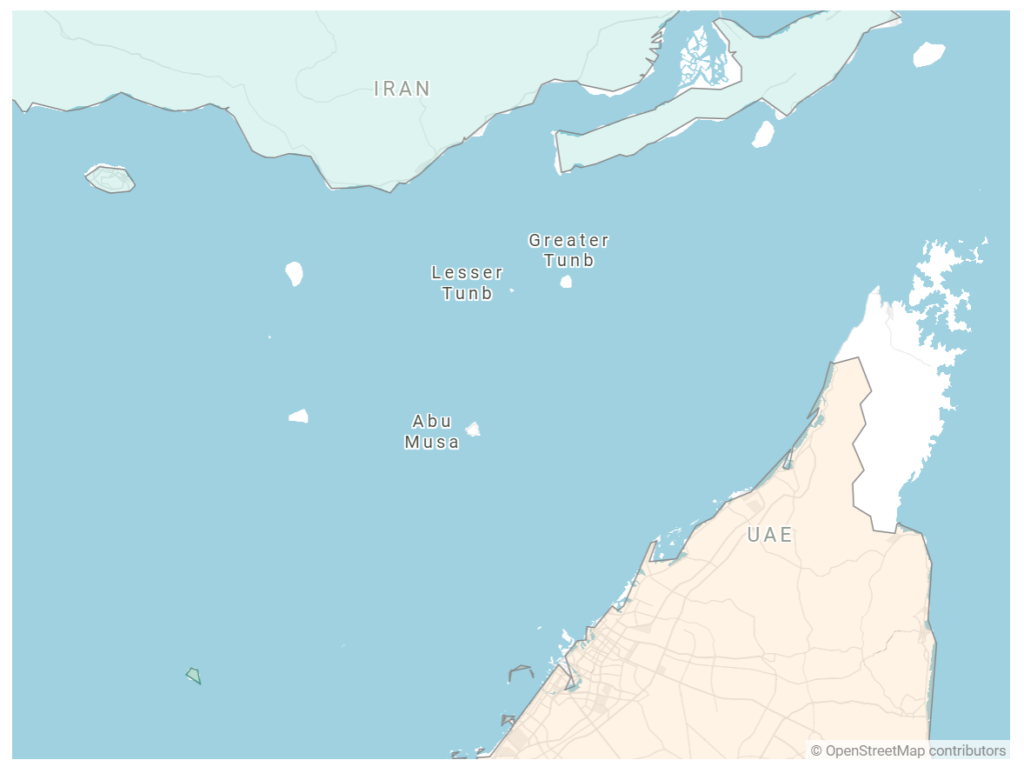
Iran and Russia have long competed for influence in the South Caucasus.
This rivalry intensified after the collapse of the Soviet Union, with both nations seeking to expand their geopolitical reach.
The 2020 war between Armenia and Azerbaijan, which saw Baku seize control over Nagorno-Karabakh, entailed shifting dynamics. Russia brokered a ceasefire but its peacekeeping role was seen as insufficient by Armenia.
Disillusioned with Russia’s stance during the conflict, Armenia has increasingly turned towards the west and especially France for support, which Paris has provided.
Iran and France have found rare common ground on the Armenian issue. Both nations oppose the Zangazur Corridor, seeing it as a threat to regional stability.
The new Pezeshkian administration has shown a desire to engage with the west. This could entail dialogue on a revised version of the 2015 Iran nuclear deal, formally known as the Joint Comprehensive Plan of Action (JCPOA).
Critics say Russia has no interest in the revival of the JCPOA, preferring to keep Iran and the west caught in a cycle of tension. This dynamic, some observers say, has gained renewed impetus with the Ukraine war and the torrent of western sanctions against Moscow.
Russia has strong reasons to be wary of a deal between Iran and the west, particularly if it addresses western demands that Tehran limit its ties with Moscow.
The future: Iran sees Russia as a key partner, but Lavrov and Putin’s recent comments on the Zangazur Corridor—and the reactions they have elicited—reflect ongoing Iranian mistrust of Russia.
Resurgent pro-reform forces in Tehran have long cast doubt on Russia’s reliability as a long-term partner. This is while hardliners have advocated the forging of closer ties with Moscow. The cross-partisan backlash over Russia’s apparent support for the Zangazur project could thus be alarming to Moscow.
Apart from potentially signaling unease with possibly upcoming dialogue between Iran and the west, Russia’s stance on the Zangazur Corridor is likely shaped by a desire to mark a stance against Armenia for moving closer to Europe.
 Eurasia Press & News
Eurasia Press & News
